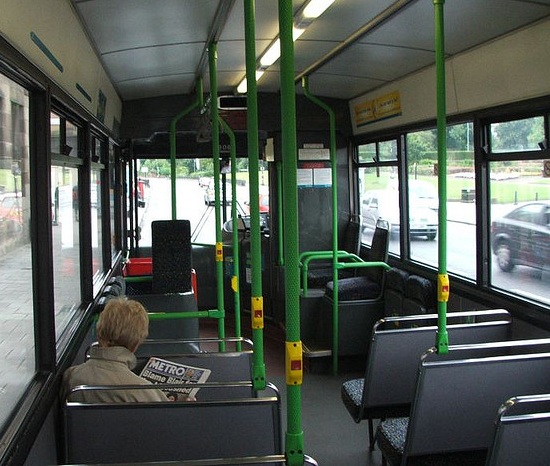Anyone who faces the daily commute to work by public transport knows that, along with frequent delays due to traffic congestion or weather issues, it can prove to be incredibly expensive even with discount options such as a young person’s travel card. And with prices set to rise as revealed by George Osborne’s Autumn Statement, workers nationwide will be grinding their teeth and sighing with frustration as they prepare to dole out yet more money for their journey into work.

This price hike does have other implications, though – this time for those struggling to find work. Without a steady income, jobseekers travelling to interviews or training courses may struggle to afford bus journeys, especially if they live in rural areas and have to make several changes before arriving at their destination.
Yet with campaign group Greener Journeys revealing that nearly 50 per cent of households where no residents have steady employment do not own or have access to their own car, public transport will be the only available method of transport for many jobseekers.
This is why Greener Journeys co-ordinated a programme allowing more than 800,000 of Britain’s unemployed to free transport by bus in order to allow them to travel to job interviews and training courses without putting a strain on already squeezed budgets. A coalition of transport bodies have agreed that, from January, anyone who has been without a job for between three months and a year will be eligible for the scheme in a boost for Britain’s job market.
Greener Journeys also interviewed businesses in order to ascertain how important access to bus transportation is to the day to day running of British companies. Over 50 per cent of participating chief executives believe buses are an integral part of recruitment and allowing their staff to get to work daily, while 20 per cent claim that the method of public transport plays an important role in the overall operation of their company.
Norman Baker, minister for Transport, says; “Good bus services play a huge role in boosting economic growth by helping people to access employment and training opportunities.
“I have been encouraging bus operators to look at the fare deals they can offer to young people for work, so I congratulate the operators that are doing so in January and look forward to seeing other offers in the future.
“This move will benefit the industry as well as job seekers as young people are not only a key section of the market – they are the future of the local bus industry.”
So far, high profile operators such as Arriva, Stagecoach, National Express and First, among others, have signed up to the scheme which they hope will, quite literally, get the job market moving again. Altogether, they believe that around 70 per cent of bus routes in England, Scotland and Wales will be covered by the time the initiative launches in January.
Anyone wishing to take advantage of this deal will require a JobCentre Plus Travel Discount Card, which already entitles the holder to 50 per cent off on all bus journeys. However, it is hoped that the support of the bus companies will allow even more people to search for gainful employment without worrying about being able to afford the monthly bills.
Do you think this scheme will prove useful in boosting the enthusiasm of those currently searching for a job, or will the initiative simply be used by some unemployed members of society as a free means of getting around town? Should other public transport operators get involved in similar programmes – perhaps by providing free train and tube journeys for jobseekers – in order to allow for longer distance or quicker travel options?
Previous Post
SuperDry Enjoys Super Sales Boost
No related posts found for this post.